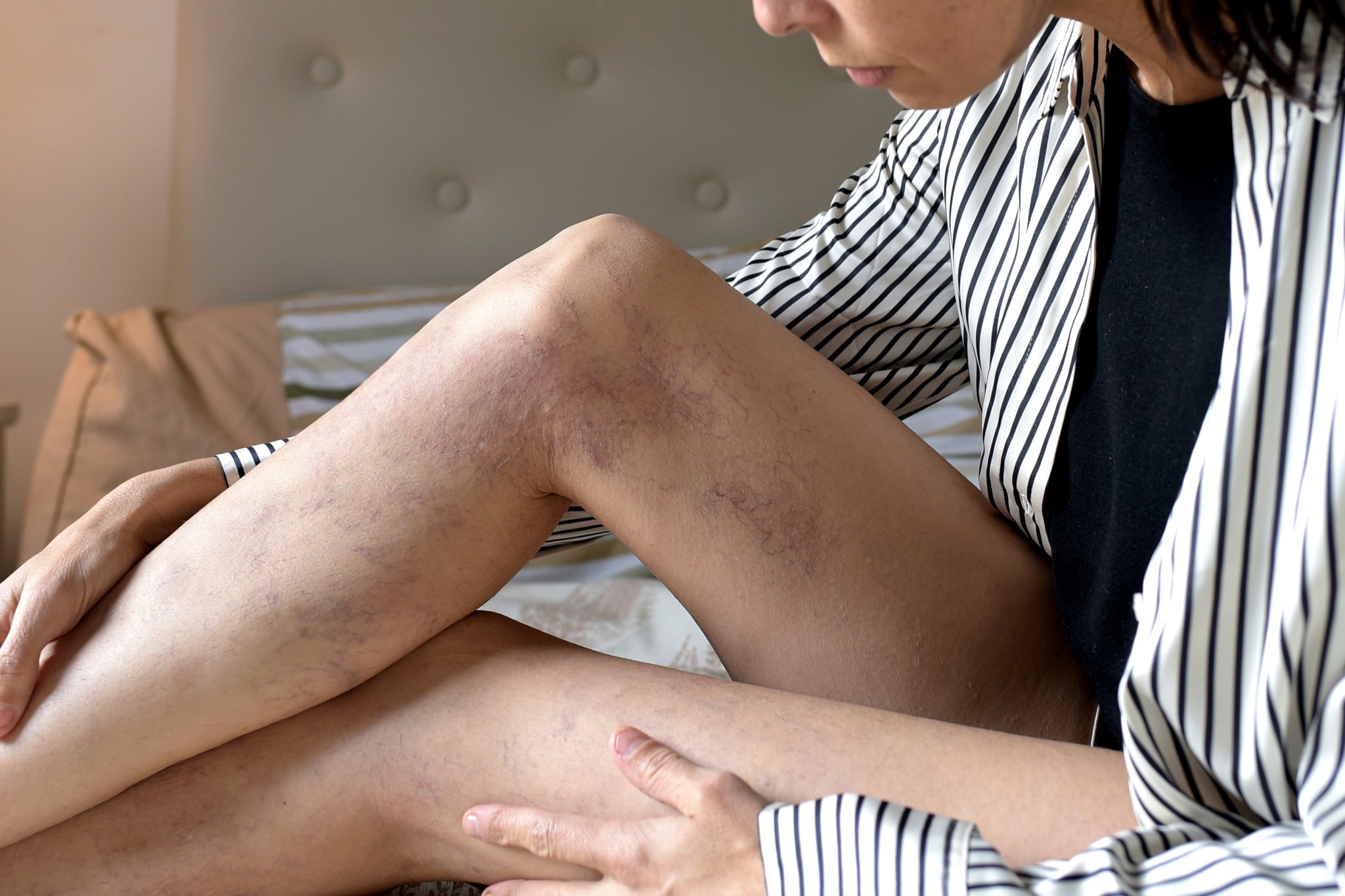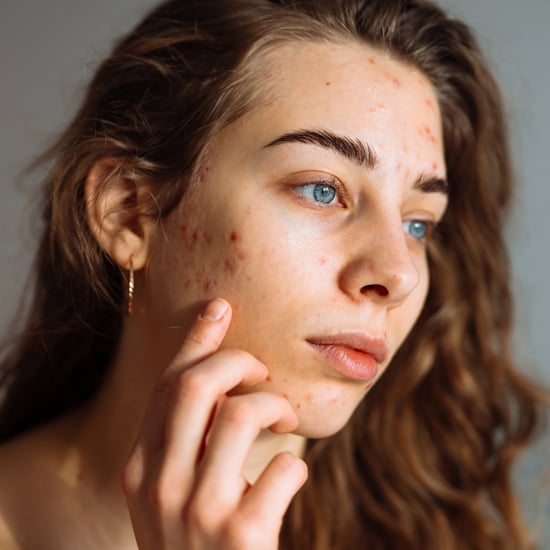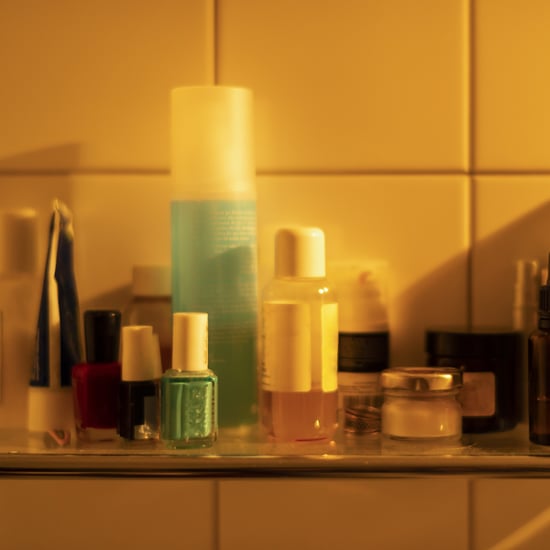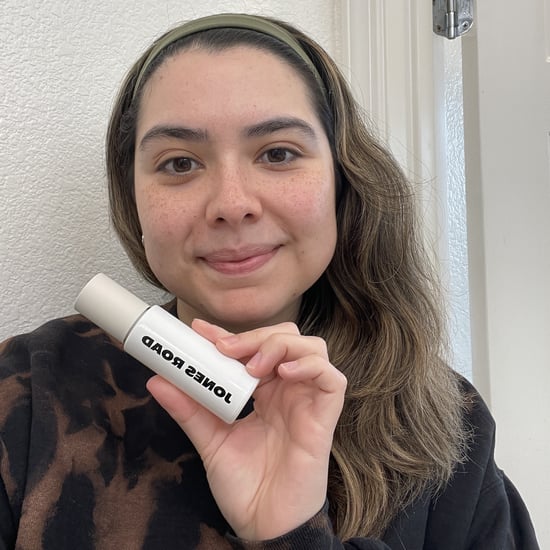Varicose Veins Treatments, According to a Doctor
How to Treat Varicose Veins, According to a Dermatologist

Varicose veins are fairly common, affecting around 20 percent of adults, according to Informed Health. Though anyone can get them starting as young as 20s, they're primarily found in women and in people in their 40s and older. Your experience with varicose veins is likely either personal, as in you've found them on your legs, or you know someone close to you who has them and has fretted about how to get rid of them.
There are a lot of factors that influence your likelihood of developing varicose veins. Age (the older you are, the more likely you are to get them), gender (as previously stated, they're more common in women), genetics, and lifestyle all play a role. The first step in treating varicose veins is identifying that the marks you see on your legs are, in fact, this particular type of vessel and not something else, like spider veins, which are similar but different.
From there, you can begin to explore the different varicose vein treatments available to you. To learn more, keep reading as a doctor explains.
What Are Varicose Veins?
If you wake up one day and notice a large, blue-coloured vein protruding slightly out of your leg, you might have a varicose vein. "They develop when veins become weak and control blood flow as well as they should," Joshua Zeichner, MD, FAAD, board-certified dermatologist and director of Cosmetic and Clinical Research at Mount Sinai Hospital's Department of Dermatology, tells POPSUGAR. "As a result, the vein itself dilates and becomes visible under the skin, giving a bumpy appearance."
Varicose veins differ from spider veins, which are much smaller and "superficial blood vessels," as Dr. Zeichner says. "They commonly occur on the legs, as well as other parts of the body like the face."
There are a few factors that can lead to the development of varicose veins. "[They] develop when valves in the veins themselves become weak," says Dr. Zeichner. "This may be caused by genetics or excess pooling of fluid in the legs from standing or sitting for long periods of time without moving." They have also been associated with weight, smoking, and genetics, meaning if they run in your family, you may be more likely to get them at some point.
Varicose Veins Treatments
The tricky thing is that "once varicose veins develop, they do not go away," says Dr. Zeichner. That means tropical products, massage, and other less invasive options are not effective. Still, there are treatment options to lessen their protruding appearance"Varicose veins can be treated with lasers, non-invasive procedures like sclerotherapy, or surgical procedures where the veins are physically removed."
In mild cases where lasers and non-invasive treatments will suffice, your dermatologist may be able to help you; in more severe instances where surgery is needed, you'll need to see a vascular surgeon. Though there are topical varicose veins treatment creams on the market that claim to help with this condition, Dr. Zeichner explains they unfortunately aren't very effective in actually getting rid of them.
According to Johns Hopkins Medicine, one common treatment method is endovenous laser varicose vein surgery, which uses a heat-based laser to close off the vessel. This results in scar tissue within the vein, cutting off blood flood and reducing its appearance.
Sclerotherapy, as Dr. Zeichner mentioned, is another popular treatment for varicose veins. If you've looked up videos of solutions on the Internet or social media platforms, like TikTok, you've likely seen this one in action. According to Stanford Medicine, during this procedure, a tiny needle is injected into the vein with a solution that causes them to close off. As a result, they become considerably lighter in colour and even disappear from view. This happens instantaneously and is highly visual, which is why it's commonly shared on social media.
Whether you're looking to seek treatment for existing varicose veins in your legs or just doing a little research knowing they run in your family, it's always a good idea to consult with your physician. They can help match you to the best treatment option available based on your medical history and lifestyle.






